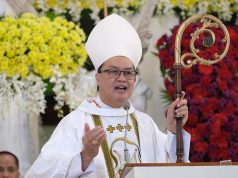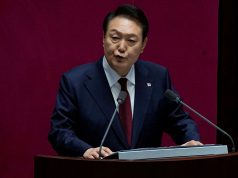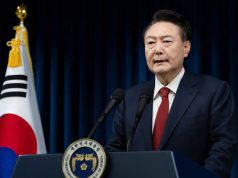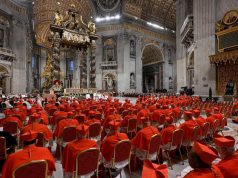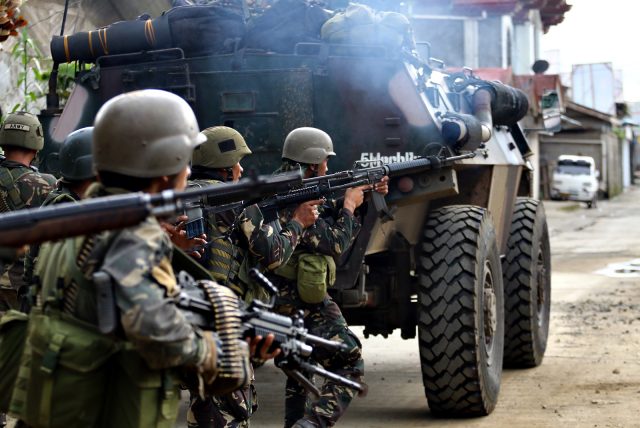
Catholic bishops in Mindanao said they “do not have solid and sufficient facts to absolutely reject the declaration of martial law as morally reprehensible” but stressed that the measure “must be temporary” and vowed to “condemn any abuse.”
The prelates made their in a statement dated Friday and signed by Cotabato Achbishop Orlando Cardinal Quevedo, which they said was addressed “to every Mindanawon” but was originally “intended to respond to the requests of our Catholic faithful who asked for pastoral guidance on the issue of martial law,” which President Rodrigo Duterte declared over the whole southern island on Tuesday after clashes broke out between government forces and the Maute group in Marawi City.
Responding to the statement, presidential spokesman Ernesto Abella described the bishops’ position as “oblique” but said the “government appreciates support from all sectors, no matter how nuanced.”
He also said the bishops “balanced” their stance with the exhortation to “be obedient to the just commands of lawful authority, and not to provoke violent reaction” as he acknowledged their call to government “to remove the causes of terrorism, such as poverty and injustice, through just and accountable governance focused solely on the common good.”
Abella also responded to a separate statement by Ozamiz Archbishop Martin Jumoad, praising his “support for the President’s war against violent extremism in Mindanao” and calling on “Muslim leaders to speak out against terrorist groups, who use religion to disguise their barbarity, staining the peaceful name of Islam with the blood of innocents during this holy month of Ramadan.”
The Mindanao bishops condemned “the terrorist acts that have caused the loss of many innocent lives, the burning of homes, public buildings, including a Protestant school dormitory and a Catholic Cathedral,” and the “unconscionable kidnapping of teachers and church personnel,” including a group led by Fr. Teresito Suganob, who they urged the Maute group to release unharmed.
They called terrorism “an ideology that is totally against the tenets of any religion of peace,” saying this was “especially so when terrorism is perpetrated while our Muslim brothers and sisters are preparing for the holy month of Ramadhan.”
While acknowledging the differing opinions on the martial declaration, the bishops also recognized that “Mindanao problems go beyond the city limits of Marawi.”
At the same time, they also described martial law as “a means of last resort” and posed questions to test its validity:
- Are moral principles fulfilled?
- Were other means to resolve the deep and wide serious problems of Mindanao impractical and ineffective?
- Will the positive effects of Martial Law outweigh the negative effects?
- Will there be probability of success?
- Will it bring about a culture of accountability and end a culture of impunity?
- Will Martial Law increase human rights violations?
- Will Martial Law be abused for evil purposes?
“The answers to many questions are speculative,” they said. “We have many fears.”
“But at present we simply do not have solid and sufficient facts to absolutely reject the declaration of martial law as morally reprehensible,” they conceded, even as they stressed that “we are certainly agreed that Martial Law must be temporary.”
The bishops also called for calm and for people to “be obedient to the just commands of lawful authority, and not to provoke violent reaction.”






